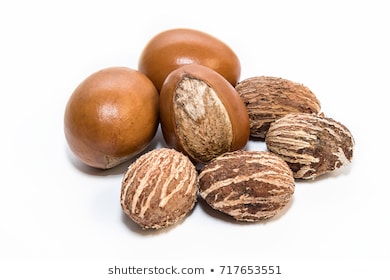News
Women shea nut processers trained by Global Shea Alliance and partners on quality standards

Some women shea nut processors in the North East Region have received training on modern nut processing practices from the Global Shea Alliance and its partners at Gbimsi near Walewale.
The training is part of an investment package to ensure that processors meet international standards in the processing of the nuts.
The women, numbering about 1,000, were drawn from 26 cooperatives and taken through recommended methods of par-boiling the nuts, de-husking, and drying, as well as sorting.
According to the trainers, the majority of the women processors use very outdated methods in the processing of the nuts, which often compromise the quality.
But as buyers prefer high-quality nuts, building the capacity of the nut processors became necessary in order to meet global standards and specifications.
Isaac Dakurah, the Shea Quality Trainer from the Shea Network Ghana, said the majority of the women have been doing things the wrong way in the past.
“In the aspect of par-boiling, the women have been doing the wrong thing. Some of them can boil the nuts the whole day, which is wrong. You only need 20 to 40 minutes of boiling time. They waste man-hours for nothing. It is just 20 to 40 minutes, and it is done, and then you can dry. So, we demonstrated to them the best method.”
The shea sector is a primary source of livelihood for many women in Northern Ghana.
With the processing of shea, the women have some control of their revenues.
But over the years, lack of technical know-how in processing has hindered many of them from benefitting fully from their trade.
The women were glad to participate in the training. Comfort Bugri, leader of the Gbinsi Women Cooperatives, spoke to Citi Business News.
“In the past years, when we want to par-boil it, we will measure and fill the big pot. Sometimes we can leave it on fire until the next day. In fact, we can leave it on fire and go to sleep, and then when day breaks, we bring it down and put another batch on fire again and go to the farm; and when you come back in the evening, you can then remove it. So, what we’ve learned today is far different from what we have been doing.”
According to the Global Shea Alliance, around 80% of West Africa’s Shea produce is purchased by European companies which are exported to Europe, Asia, and America.
The Food and Agriculture Organisation (FAO) indicated in 2017 that, the Shea industry offers jobs to more than 600,000 women Shea collectors and processors in Ghana, making the majority of women the breadwinners of several households.
It is against this background that the GIZ under its ‘Invest for Jobs’ Initiative, has targeted the sector with 1.15 million Euro funds over a two-year period according to Magdalena Wagner, Monitoring and Evaluation Officer at GIZ.
“The project is supported by GIZ, particularly by a project which is operating under a brand; Invest for Jobs. What we do is, we cooperate with the private sector in order to create employment and also to improve working conditions”
“So, we believe that together with the private sector, that is a good way to achieve more and better work. We also believe it has a lot of potential in terms of job creation, especially for women in the rural areas.
The women also received donations from Fuji Oil Ghana Company Ltd, one of the off-takers assisting the women with logistics and capacity building. The items included jute sacks, weighing scales, office furniture among others.
The procurement officer at Fuji Oil Ghana, Job Osei explained the reason for the partnership.
“We are here to donate equipment that would help them in their activities as they collect the shea nuts, and aggregate them into the warehouses.”
A total of 30,000 women are targeted to receive the training in the Savannah Ecological Zones of Ghana comprising the Savannah, Upper West, Upper East, Northern, and Noth East Regions.
Source: Fiilafmonline/CitiNews



